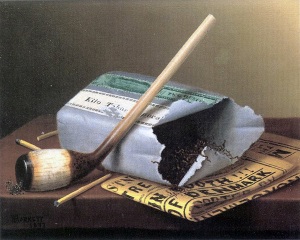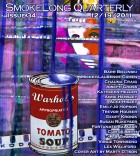What was the inspiration for this story?
“The Freeze” was inspired by a cosmological theory on the ultimate fate of the universe called the “Big Freeze.” The basic idea is that the universe will cool as it expands indefinitely.
The first little spark of inspiration came from an interview with Stephen Hawking, which I saw when I was about 10. He explained one of the theories and I remember thinking something to the effect of, “These would make good stories. So many description possibilities!”
To me, this was beautiful and also dark. On your website, you mention a goal to add more humor to your writing. How do you imagine balancing the humor and the darkness?
It’ll probably come down to recognizing when those elements feel out of place in the story, and having a sense of what each scene needs to realistically convey an experience. With “The Freeze,” I can see Gabe telling a fart joke over dinner, but a detail like that would have needed well crafted tonal transitions to avoid interrupting the story’s flow.
Did you have a year in mind for this story? How far in the future do you imagine it being set? Or does the statement “the end is always coming” make that irrelevant? That no matter where you are in time, the end is coming?
If the Big Freeze were to occur, it wouldn’t happen for billions of years and I don’t know nearly enough about cosmology to even guess what the universe will be like then. So, “The Freeze” is what I imagine the Big Freeze would look like in a world similar to our own. I tried to think through how huge temperature drops would affect immigration patterns, relationships, and the way we tell stories to make sense of our pasts and futures.
The line “The End has always been coming” comes from growing up fundamental Baptist and hearing many, many sermons on the Book of Revelation and “End Times.” I tend to subscribe to the “no matter where you are in time, the end is coming, so accept that all life is fleeting and live a good, moral one” school of thought, but I grew up around a lot of people who believe that we are living in the literal, Biblical End Times, complete with guesses on which world leaders could be the Antichrist.
It’s interesting that Michael describes the ancient constellation as “a spoon.” I assumed he meant the Big Dipper or the Little Dipper, and to me, this was a part of the story’s poignancy: the idea that details such as this will be misunderstood so many years hence. Was that your intent?
Absolutely! I love how we, as people, have a tendency to mythologize the past, even though the downside is that we often forget things we should remember.
I was super into Greek mythology as a kid, and part of what was so fascinating to me about the myths was that they had once felt very real to the people who believed them. That’s how I saw Michael feeling about our current belief systems and how we live now, with our constellations and crazy machines to make things cold.
Have you found other ideas in scientific articles/theories?
There are a couple parts to this answer. My dad is a human sexuality researcher, so I have a lot of respect for science and scientists. And when I’m writing about romantic relationships, I can’t get away from what I learned talking about sex research at the dinner table growing up.
But in terms of “hard science,” the cosmological fate of the universe inspiration was a first. Hopefully, there’ll be more. I feel like science is God’s way of saying, “It’s cool out there! Explore! Learn! Writers write about it! Painters paint it!”



 The core workshop of SmokeLong Fitness is all in writing, so you can take part from anywhere at anytime. We are excited about creating a supportive, consistent and structured environment for flash writers to work on their craft in a community. We are thrilled and proud to say that our workshop participants have won, placed, or been listed in every major flash competition. Community works.
The core workshop of SmokeLong Fitness is all in writing, so you can take part from anywhere at anytime. We are excited about creating a supportive, consistent and structured environment for flash writers to work on their craft in a community. We are thrilled and proud to say that our workshop participants have won, placed, or been listed in every major flash competition. Community works.